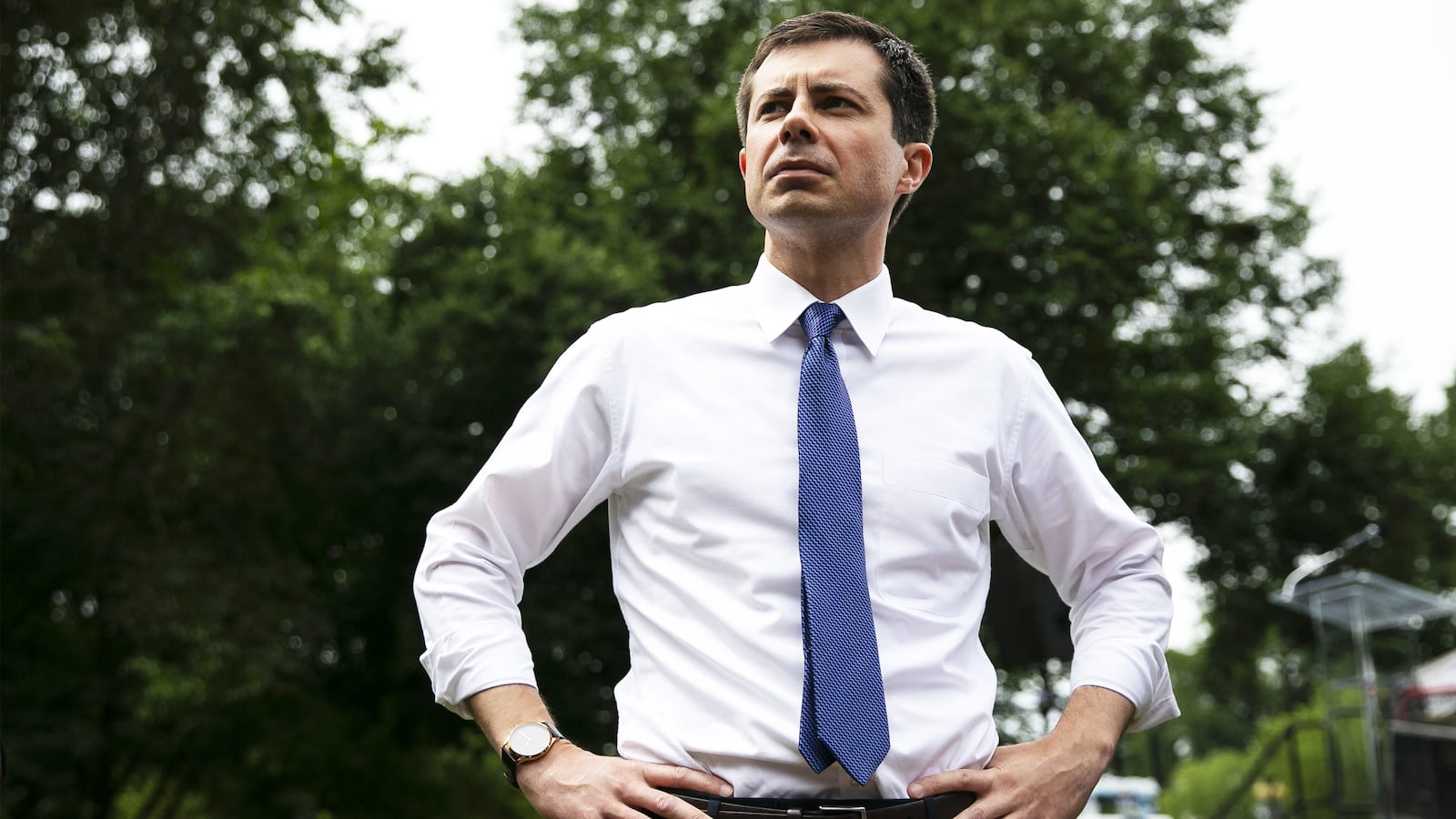Two presidential candidates used the word “existential” in speeches on the same day on the trail this week. One was Joe Biden talking about Donald Trump, the other was Pete Buttigieg, who was stealthily moving in on one of the vice president’s signature issues.
Biden captured the attention of 2020 watchers during his trip to Iowa, where he called President Trump an “existential threat” to the country. The former vice president, who grew increasingly aggressive in his attacks on Wednesday as he and Trump held competing events at nearly the same time in the first caucus state, sought to position himself as a steady hand on the world stage, an elder statesman that can restore America to its rightful place.
“Our democracy is at risk. I never thought I would say those words. But it's true,” Biden said. “Just look at what's happening around the world. Dictators and tyrants are using Trump's words to justify their own abuses of power in their countries. Trump's goal is simple–discredit the news, discredit the free press–and he gets to run roughshod over America.”
But as Biden and Trump traded insults, another Democratic candidate–nearly four decades younger than Biden–was moving in on his stronghold in the foreign policy lane.
Buttigieg, the 37-year-0ld mayor of South Bend, often notes that he has more military experience than Trump. He sometimes adds that as a former Navy intelligence officer who served in Afghanistan, he is of the generation who deployed in the Middle East and feels the consequences of it.
This week he subtly turned that contrast to Biden, the former chair of the influential Senate Foreign Relations Committee and current frontrunner in national polls.
Buttigieg’s campaign said it was not planned that way, and that his speech had nothing to do with the former vice president. But the similarities nonetheless provided a glimpse into what voters might expect to see from the two rivals, who will soon share a debate stage for the first time, on issues of global importance.
As Biden addressed his crowd in Iowa—rhetorically asking if Trump did “anything to signal that he’s prepared to walk away from the thugs he’s embraced on the world stage”—Buttigieg was cautioning Democrats not to “turn the clock back to the 1990s” during a speech in Indiana.
“It has been difficult to identify a consistent foreign policy in the Democratic Party,” Buttigieg said, referencing a time that Biden was vice president and a leading voice in the Senate without calling him out by name.
Speaking about issues like NATO, North Korea, and Russia in a nearly hour-long speech, he used the word “existential,” but in a decidedly different way than Biden.
“We must treat climate change as the existential security challenge that it is,” he said.
Buttigieg pledged to repeal the 2001 authorization for use of force in Iraq and Afghanistan and to restart the Iran nuclear deal. And he took jabs at Trump, saying “we need a strategy.” While Biden’s attacks on the president were notably more overt, some international affairs experts suggested Buttigieg’s comments made a significant impression.
“People definitely noticed it in foreign policy circles,” Daniel Drezner, a professor at Tufts University’s Fletcher School of Law and Diplomacy, said of Buttigieg’s remarks.
Drezner, who said that he was “legitimately impressed” by details Buttigieg peppered throughout the talk, recognized similarities in the tone and rhetoric of his speech and Biden’s past foreign policy addresses.
“It focused a lot on American values,” he said. “In that sense it’s very similar to Biden’s.”
When pressed on whether Buttigieg’s plan to talk about foreign policy deliberately coincided with Biden’s speech, his campaign said that it did not factor into their decision. Instead, they stressed that he is running his own campaign from the perspective of an Afghanistan veteran and millennial mayor who brings a unique perspective to the subject.
And it’s not just words. Buttigieg has been building a brains trust whose membership reads like a Who’s Who of the foreign policy elite. Doug Wilson, a leading Obama administration official who served as the assistant secretary of defense for public affairs, is leading the effort, while Ned Price, a former special assistant at the National Security Council, and Tarek Ghani, an assistant professor at Washington University in St. Louis, are serving as advisers, first reported by Politico and confirmed by The Daily Beast.
Combined with his new slate of advisers, it’s Buttigieg’s use of the same kind of language that voters are used to hearing from Biden’s time in the Obama administration that popped out.
“American foreign policy for the future must be securely grounded in American values, American interests, and American relationships,” Buttigieg said on Tuesday.
Meanwhile, some 500 miles away, Biden spoke in similarly broad terms: “If we stand up for American interests, if we invest in our people, live our values, and work with our partners—we can out-compete anyone.”






